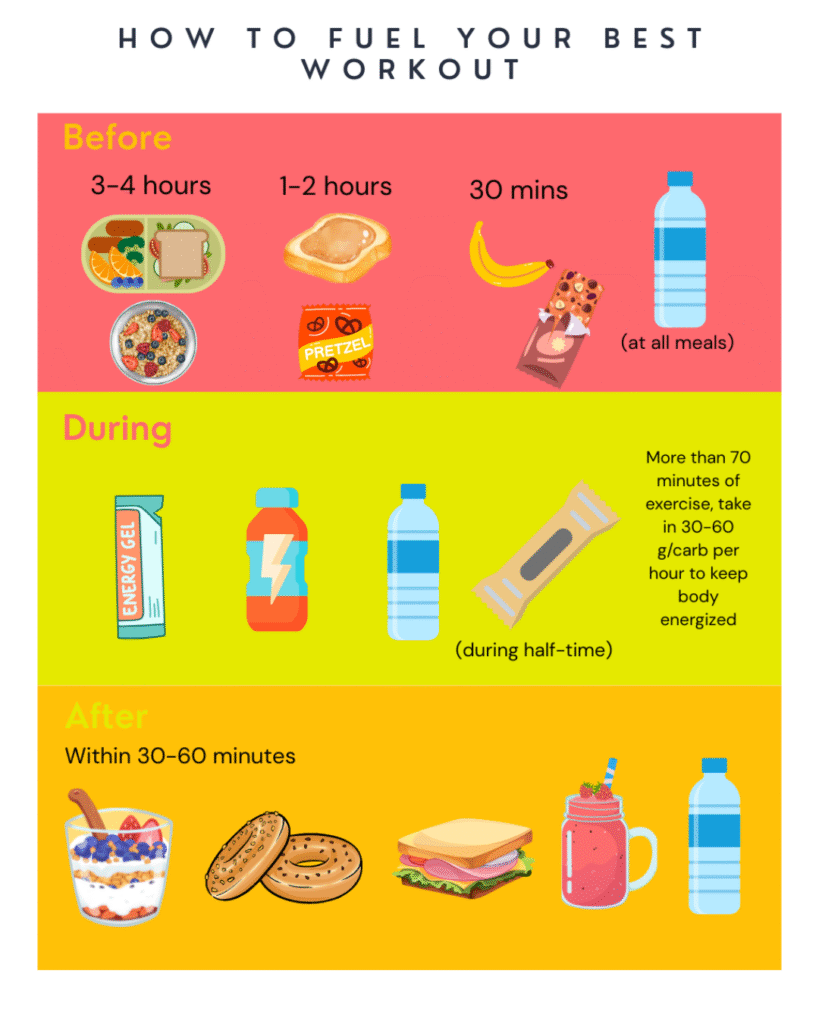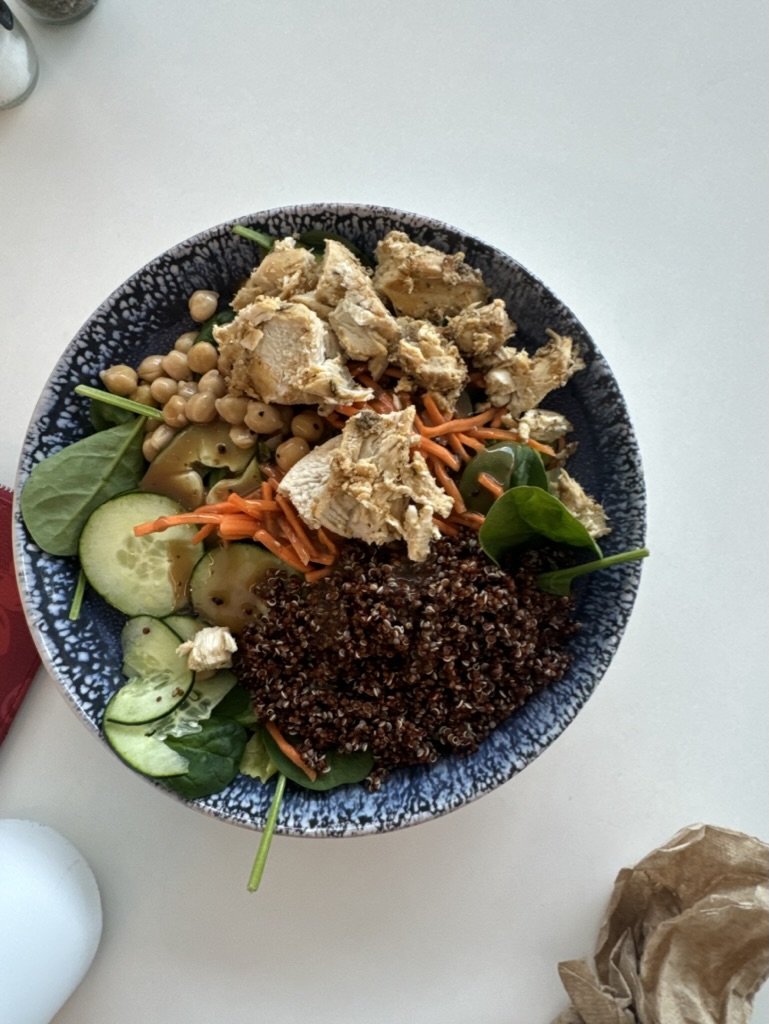Amy Stephens
MS, RDN, CSSD, CEDS
Licensed dietitian
specializing in sports nutrition
and eating disorders
MS, RDN, CSSD, CEDS
Licensed dietitian
specializing in sports nutrition
and eating disorders
As a college student who’s always on the go and whose schedule is constantly changing, something I always try to prioritize in my life is exercising at some point during the day. Whether I’m going on a long run, taking a 15-minute strength class, or going for a walk, properly fueling my body before, during, and after a workout is crucial.
Why is fueling before so important?
During exercise, your body uses a combination of carbs and fat for energy. The energy source depends on the intensity and duration of the exercise. More intense workouts rely more heavily on glucose (derived from carbs) for energy. During lower-intensity workouts, a combination of fat and some glucose is used. If you can talk with your friends, you are using fat for energy. If you’re exercising at a greater intensity, making it harder to speak, glucose is the primary fuel. Your body has a limited amount of glucose, which typically lasts 70-90 minutes, whereas fat is much more abundant. When you exercise for an extended period, exceeding 90 minutes, your body can use up all of the available glucose and you might “hit the wall”. Additionally, while exercising, your body breaks down amino acids in the muscles and will start to as an energy source, too (Semeco).
Because of the use of glucose as the body’s main way to fuel exercise, something significant to prioritize before and during a workout is carbohydrates. Consuming carbohydrates before a workout can help your body sustain high-intensity short-term workouts, while also supporting it in the long term if you engage in more moderate-intensity exercise for a longer duration. After a workout, it’s essential to replenish your body. Proteins in the form of amino acids degrade during exercise, and replenishing your amino acids repairs muscles and helps our bodies get stronger. Getting proper nutrients before and after exercising helps your body sustain the workout and repair muscles (Semeco).

Ideal Timeline
The right timing and nutrients of your meals before a long workout can drastically improve athletic performance and keep your body powered. When doing a long-duration workout (greater than 70-90 minutes), such as a long run:
Before:
During:
After:
Time of day
For me, depending on the time of day I exercise, I often find it challenging to ensure my body is getting proper fuel to help me power through my workout. In the morning, for example, if I go for a run without eating enough beforehand, I find it very difficult to complete my workout, and I often finish feeling exhausted and sluggish.
In the morning, my favorite pre-workout snack is a banana with peanut butter and cinnamon, typically around 45 minutes before I start. The banana helps prevent cramps and gives me a boost of energy to get through my morning workout.
When I exercise in the afternoons, I sometimes struggle to plan it, taking into account my dinner timing. I try to eat a nutritious lunch 3 hours before. I love making quick sandwiches, wraps, and grain bowls. If I’m doing an intense workout like running or a peloton class, I’d opt for a low-fiber lunch like a turkey on sourdough bread. An hour before, I usually have a snack, typically consisting of pretzels, apple slices or dried fruit. If you have a sensitive stomach, you may want to limit the fiber from raw vegetables, dairy, popcorn, and make sure to leave plenty of time to digest before exercising.

Refueling snack
Recently, I’ve been making a dip out of Greek yogurt and peanut butter, and dipping apple slices as my refueling snack. This snack helps me boost me recover faster and energy levels stable for the rest of the day.

Reference
Burke LM, Hawley JA, Wong SH, Jeukendrup AE. Carbohydrates for training and competition. J Sports Sci. 2011;29 Suppl 1:S17-27. doi: 10.1080/02640414.2011.585473. Epub 2011 Jun 9. PMID: 21660838.
Semeco, A. (2024, December 12). Pre-workout nutrition: What to eat before a workout. Healthline. https://www.healthline.com/nutrition/eat-before-workout#takeaway